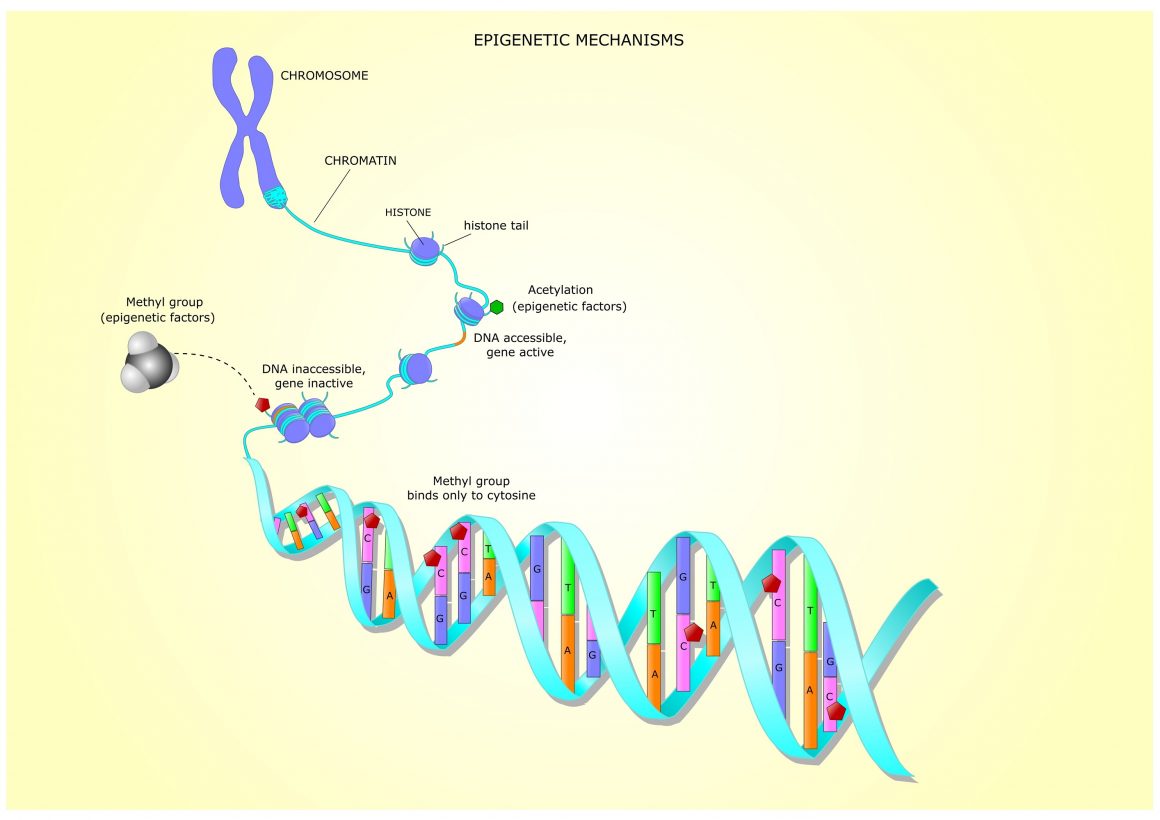Genetics tell us a lot about who we are in terms of heritage and the conditions we tend to be susceptible to due to family history. But epigenetics is a window into the current and future states of our health based on our diets, sleep patterns, exercise habits and environmental factors we are exposed to, all of which are factors which determine how we age.
Those factors ultimately have a tremendous influence on genetic behaviors and a person’s risk of developing a chronic condition such as diabetes, heart disease or even neurodegenerative conditions like Alzheimer’s Disease.
The way epigenetic changes accumulate over the course of our lifespan tells us a great deal about how we are aging. If you see a 55-year old person who looks 40 and someone else the exact same age that looks 65, part of what you are likely seeing is the difference between their epigenetic performance.

The Epigenetic Clock
You may have heard of the epigenetic clock, a test of the epigenome that looks at chemical compounds which tag DNA. The first epigenetic tests were developed nearly a decade ago and focused on methylation and demethylation (growth or shortening) of chemical chains within our genes. And the result is a test that can provide a remarkably accurate assessment of your biological (epigenetic) age.

Today, commercial products have been developed based on this science, but now researchers are also looking at another epigenetic biomarker that may yield testing to determine biological age with the same accuracy simply by looking at the blood and the proteome. In particular, the tests examine which proteins are present in blood plasma. Some are beneficial and some are drivers of cellular senescence.
This revelation has some wondering if scientists will now be able to predict lifespans, but given the variation in environmental factors, that is unlikely. The reason is that the tests are designed to examine larger populations rather than individuals. So while it’s possible to note the lifespan of people who share the same epigenetic biomarkers as a group, it’s not possible to predict an individual’s lifespan based on these tests.
Ramification of Epigenetic Discovery
Obviously, there is great interest in the use of epigenetic testing to assess damage to DNA and assign a biological age, but the immediate use of any sort of intelligence gathering tool is often to try it in trial settings.
Researchers are now using epigenetics to verify findings in clinical trials and analyze the effectiveness of pharmaceutical solutions to health problems that commonly come with age. Where once researchers would have to take a wait and see approach that could last for years, now they can know in a relatively short period of time whether newly developed treatments are proving to be effective in combatting disease or not.

Just as important is the effect this will have on anti aging efforts. If a person changes their habits thinking they’re making beneficial adjustments for the rate at which they age, they could now have a measuring stick by which they can look at the results of their efforts to determine their success or failure.
Health insurance companies could also start using the tests to perform risk assessments of patients and eventually even be able to predict lifespan based on the data. Whether or not that is a good thing is another matter.
As researchers come to better understand the timeline of aging, you can expect epigenetics to have played an important role in unearthing what is found and helping the scientific community figure out what to do next.
